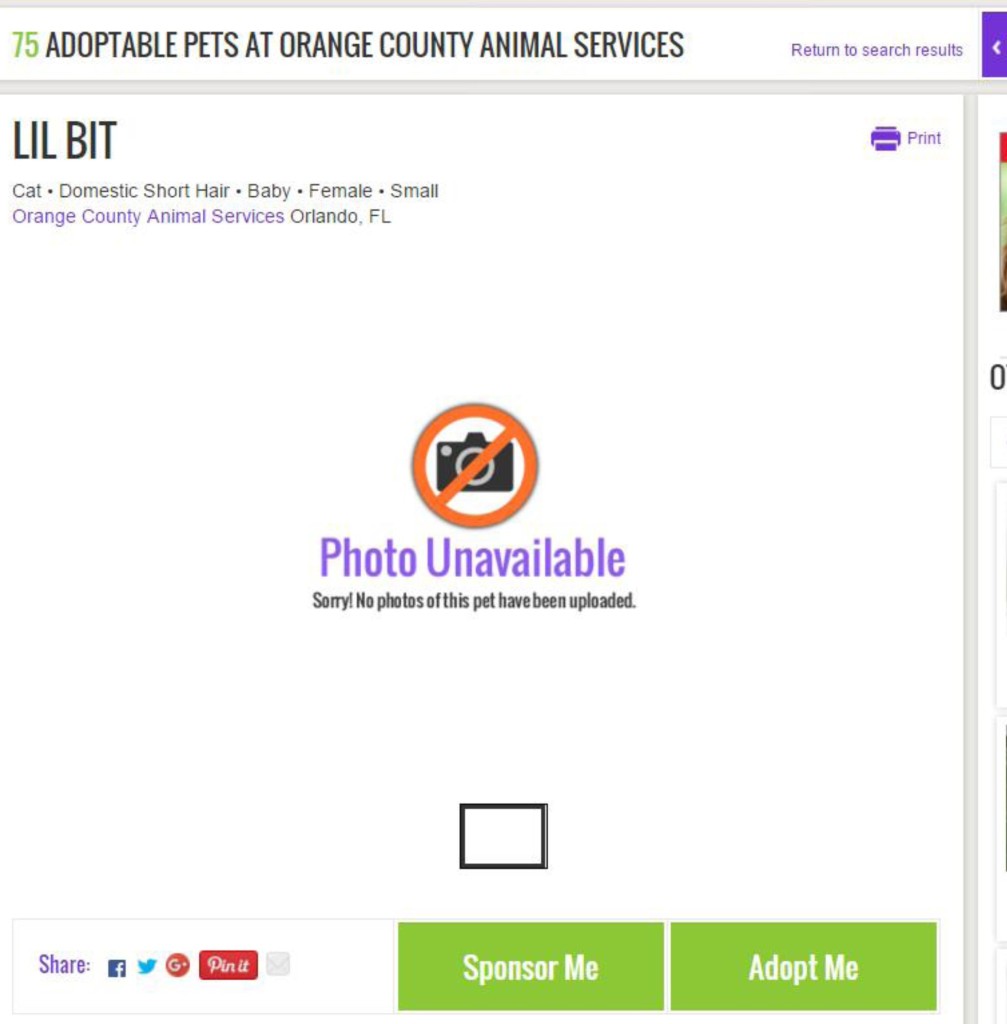
Taking photos and using internet deemed too onerous to save thousands of animals despite a one-time $12.99 cost.
HB 71/SB 1108, the Companion Animal Protection Act, is pending in Florida. The bills would make it illegal for shelters to kill animals if there are empty cages or kennels, if animals can share a cage or kennel with another animal, if a foster home is available, if a rescue group is willing to take the animal, if an animal can be transferred to another shelter, if the animal can be sterilized and released, and more. Similar laws in other states save nearly 50,000 animals a year, have reduced killing statewide by 78%, have led to save rates of 94% and higher, and have cut millions of dollars in wasteful spending. Such a law is not only necessary, reasonable and an effective means of saving lives, its passage would also bring Florida’s sheltering procedures more in line with the humane, progressive values of the American public. But the Florida Animal Control Association (FACA) is trying to kill it.
Among other facile complaints, FACA claims that the legislation’s requirement that shelters post photographs to the internet to allow people to find their lost animal companions without having to miss work is unfair because some shelters do not have the resources to do so.
The only “resources” required to meet this requirement are a digital camera and access to the internet. A 3.0 megapixel digital camera is selling on Amazon for $12.99 and is a one-time expense. In 2016, all shelters have access to the internet and all cities and counties have websites. Moreover, Facebook is a free service and would satisfy the posting requirement. No additional staffing is required and claiming that taking a photograph as part of an intake procedure which is already being done is onerous shows how desperate FACA is to criticize a well-thought out and fairly written bill.
In fact, those shelters that post animals to the internet have doubled and, in some cases, tripled the percentage of reclaimed dogs and increased significantly the percentage of lost cats reclaimed. More to the point, when these shelters exist to serve as a taxpayer funded bailee for people’s lost animals, a place where the community which funds the shelter can go to search for their lost pets, the claim that it is onerous to mandate that the shelter do something as central and essential to that purpose as posting a photo of impounded pets on a website for public review is, in fact, proof that sensible laws to ensure that common sense lifesaving measures are taken are needed. Posting photos of found pets not only saves live, it increases revenue from reclaim fees, saves taxpayer money associated with killing animals and disposing of their bodies, and frees up kennel/cage space for animals who truly need it. It also keeps families together and prevents heartache for those whose animals are killed before they have an opportunity to reclaim them; indeed in many cases, before they even know they are missing.
Perhaps most important of all, it brings our shelters into the 21st century. Allowing members of the public to search online for their lost pet rather than have to visit the shelter on a daily basis, something that for many people who are busy with jobs, family and other obligations may be difficult to do, especially if the shelter is in a remote, out of the way location as they often are and with hours that make it difficult for working people to visit, is fair and reasonable.
Animals needlessly die because people cannot get to the shelter regularly, or give up searching too soon, the latter being something that they would be far less inclined to do if searching meant doing so from any computer or smartphone. Given the innumerable and comparatively insignificant ways our lives are enhanced and made more convenient through the use of technology, how can FACA make the absurd claim that being expected to use the internet in this most obvious and common sense way to better serve the taxpayers is an onerous expectation?
If you live in Florida, please contact your local legislator and ask them to cosponsor and support HB 71/SB 1108.
If you live outside of Florida, please share with those who do. You can also bring CAPA to your state by following this step by step guide on how to get it introduced in your state.
————-
Have a comment? Join the discussion by clicking here.